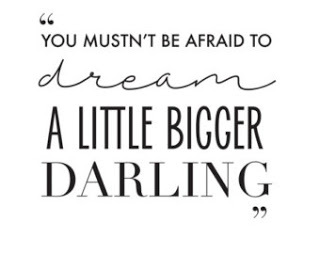Why You Should Intentionally Write Messages Into Your Stories
"That book changed my life."
"This character's strength helped me through a rough patch."
"That message was one I really needed to hear."
This are just a few phrases that I'm pretty sure we've all heard. I've never found statements like this odd. After all, I also have read books that have shaped my thoughts and inspired my actions.
When I decided that I wanted to be a writer, I took it as a matter of course that I would write stories with the goal of encouraging and inspiring my readers. I knew that stories had power. I'd seen that power. Felt it. I was conscious of it and chose to write carefully because I knew that words can make an impact.
I took it as a matter of course that other writers did the same.
But, after almost three years of blogging, I'm coming to realize something. Not all writers believe this. Many writers do not believe that they have a responsibility to write stories that are in some way helpful to their readers.
I've received comment after comment from fellow writers that all say pretty much the same thing: Authors should not inject themselves into their books. They write a story and let the reader take what they want from it. Readers pick the messages, the themes, the lessons, not the writers.
At first the comments made me chuckle. Oh, the delusional few. But I soon found that this belief isn't just a fringe group. It's an entire chunk of the writing community that holds this view.
People shudder at the idea of putting "lessons" and "morals" and "messages" into their stories. It's brainwashing! Preaching! Judgmental! It pulls people out of the book! It politicizes a story! Just write a good plot and developed characters and let the readers take from it what they will.
Now I'm going to say something. And it may make you frown. Just hear me out:
 You cannot have a good plot or developed characters without a message. You just can't.
You cannot have a good plot or developed characters without a message. You just can't.
How do you know you have a great story on your hands? I'll tell you. It's the book you laugh over, cry over, the book you want to share with close friends and random people you pass on the street. It's the book that makes you think about it even when you've put it back on the shelf. The one that you find yourself wanting to quote. The story you want to hug against your chest in an attempt to absorb the strength and emotion that the character convey. The one that stays with you.
Those great stories are few and far between. They span all genres, include dozens of different characters types, and are written by authors living in all different countries in all different time periods. But, if you look closely, you'll see that they have one thing in common.
 The author cared. You can feel it in the pages. The author pouring out his heart, trying to reach you. To tell you something. The author writing characters fighting problems that she knew you needed to see defeated. Authors who saw souls that they believed they could strengthen if they just used the right words.
The author cared. You can feel it in the pages. The author pouring out his heart, trying to reach you. To tell you something. The author writing characters fighting problems that she knew you needed to see defeated. Authors who saw souls that they believed they could strengthen if they just used the right words.
They had stories they wanted to tell. Stories are born of plot and characters. Plots are born of real-life circumstances. Characters are born of real-life emotions. Our world is made up of stories and stories are made up of our world. They feed off of each other, intersect, tangle together in an inseparable web of words.
You cannot have one without the other. To try to remove yourself from your writing is like trying to remove yourself from existence. To try to remove a message from your writing is like trying to live without ever impacting another life. It simply is not possible.
No matter what you do, you will always be in your writing. Try as hard as you can and you will still have messages sneaking their way into your stories.
Own it.
Those messages will be half-dead and meaningless unless you feed them. Let them go untended and you'll have a story, yes. But not a great one. Maybe a decent one. An entertaining one. But it's also just as likely that you'll have an empty story. Or a harmful one with confused morals, dilapidated messages, and warped characters.
You want your readers to decide what message your story holds? They're not going to bother with picking out a message if you hand them over a less-than-great story. How do you expect them to find a purpose to your story if it isn't a book that they're going to think about after they put it down? You have to make them care about your story to make them find a meaning in it. And a reader can't care about a story if you don't care first. A reader can't care about a story if you don't give them something to care about first.
Sure. Reader will, to some extent, take different things from a book. People will read a book and grab hold of the parts that are relevant to them. That's what make them so special and so powerful. Five people can read a great book and walk away with different lessons.
But that's only because five different lessons were already placed in the book to be found.
It's true that readers can find a meaning in a book that the author hadn't originally intended. But this is due to one of two occurrences:
The author wrote the story so sloppily that there was no coherent message and thus could mean anything and, thus, nothing.
Or, alternately, the author wrote a story so honestly that there are messages outside of those expressly intended. They grew out of the original purpose of the story naturally and still fit with the integrity of the story.
As a writer, you are not expected to have all the answers. I'm not telling you that you need to solve the meaning to life, the universe, and everything. I'm certainly not telling you to shower people with propaganda pamphlets and pretend that they're stories.
 What I am telling you is that you owe it to yourself and your readers to write a story that means something. Write what is important to you, because those themes are going to creep into your novel anyway. It's up to you to decide. Do you want full-fledged messages that have the power to make your reader stop and think? Or do you want a neglected theme that's starving to death between the pages?
What I am telling you is that you owe it to yourself and your readers to write a story that means something. Write what is important to you, because those themes are going to creep into your novel anyway. It's up to you to decide. Do you want full-fledged messages that have the power to make your reader stop and think? Or do you want a neglected theme that's starving to death between the pages?
Writing a story with a message takes guts. Weaving strong themes into a story without preaching or forcing a view takes skill. But you can't write a story worth reading if you aren't willing to put work into it. Don't be afraid. Write hard. Write true. Go deeper. I can promise you that your story, yourself, and your readers will be the better for it.
What do you think about writing stories with a message? What do you believe and why? I'd love to hear your thoughts! And if you have books that you know fall solidly in the afore mentioned "great book" category, please leave the title below!
Related articles:
Challenging Writers to Write Honestly
Why There's No Such Thing As "Just A Story"
Challenging Writer's to Create Stories With Meaning
Enjoy this post? Take a look around. If you like what you see, please don't forget to subscribe by email for a new post every Friday!
"This character's strength helped me through a rough patch."
"That message was one I really needed to hear."
This are just a few phrases that I'm pretty sure we've all heard. I've never found statements like this odd. After all, I also have read books that have shaped my thoughts and inspired my actions.
When I decided that I wanted to be a writer, I took it as a matter of course that I would write stories with the goal of encouraging and inspiring my readers. I knew that stories had power. I'd seen that power. Felt it. I was conscious of it and chose to write carefully because I knew that words can make an impact.
I took it as a matter of course that other writers did the same.
But, after almost three years of blogging, I'm coming to realize something. Not all writers believe this. Many writers do not believe that they have a responsibility to write stories that are in some way helpful to their readers.
I've received comment after comment from fellow writers that all say pretty much the same thing: Authors should not inject themselves into their books. They write a story and let the reader take what they want from it. Readers pick the messages, the themes, the lessons, not the writers.
At first the comments made me chuckle. Oh, the delusional few. But I soon found that this belief isn't just a fringe group. It's an entire chunk of the writing community that holds this view.
People shudder at the idea of putting "lessons" and "morals" and "messages" into their stories. It's brainwashing! Preaching! Judgmental! It pulls people out of the book! It politicizes a story! Just write a good plot and developed characters and let the readers take from it what they will.
Now I'm going to say something. And it may make you frown. Just hear me out:
 You cannot have a good plot or developed characters without a message. You just can't.
You cannot have a good plot or developed characters without a message. You just can't.How do you know you have a great story on your hands? I'll tell you. It's the book you laugh over, cry over, the book you want to share with close friends and random people you pass on the street. It's the book that makes you think about it even when you've put it back on the shelf. The one that you find yourself wanting to quote. The story you want to hug against your chest in an attempt to absorb the strength and emotion that the character convey. The one that stays with you.
Those great stories are few and far between. They span all genres, include dozens of different characters types, and are written by authors living in all different countries in all different time periods. But, if you look closely, you'll see that they have one thing in common.
 The author cared. You can feel it in the pages. The author pouring out his heart, trying to reach you. To tell you something. The author writing characters fighting problems that she knew you needed to see defeated. Authors who saw souls that they believed they could strengthen if they just used the right words.
The author cared. You can feel it in the pages. The author pouring out his heart, trying to reach you. To tell you something. The author writing characters fighting problems that she knew you needed to see defeated. Authors who saw souls that they believed they could strengthen if they just used the right words.They had stories they wanted to tell. Stories are born of plot and characters. Plots are born of real-life circumstances. Characters are born of real-life emotions. Our world is made up of stories and stories are made up of our world. They feed off of each other, intersect, tangle together in an inseparable web of words.
You cannot have one without the other. To try to remove yourself from your writing is like trying to remove yourself from existence. To try to remove a message from your writing is like trying to live without ever impacting another life. It simply is not possible.
No matter what you do, you will always be in your writing. Try as hard as you can and you will still have messages sneaking their way into your stories.
Own it.
Those messages will be half-dead and meaningless unless you feed them. Let them go untended and you'll have a story, yes. But not a great one. Maybe a decent one. An entertaining one. But it's also just as likely that you'll have an empty story. Or a harmful one with confused morals, dilapidated messages, and warped characters.
You want your readers to decide what message your story holds? They're not going to bother with picking out a message if you hand them over a less-than-great story. How do you expect them to find a purpose to your story if it isn't a book that they're going to think about after they put it down? You have to make them care about your story to make them find a meaning in it. And a reader can't care about a story if you don't care first. A reader can't care about a story if you don't give them something to care about first.
Sure. Reader will, to some extent, take different things from a book. People will read a book and grab hold of the parts that are relevant to them. That's what make them so special and so powerful. Five people can read a great book and walk away with different lessons.
But that's only because five different lessons were already placed in the book to be found.
It's true that readers can find a meaning in a book that the author hadn't originally intended. But this is due to one of two occurrences:
The author wrote the story so sloppily that there was no coherent message and thus could mean anything and, thus, nothing.
Or, alternately, the author wrote a story so honestly that there are messages outside of those expressly intended. They grew out of the original purpose of the story naturally and still fit with the integrity of the story.
As a writer, you are not expected to have all the answers. I'm not telling you that you need to solve the meaning to life, the universe, and everything. I'm certainly not telling you to shower people with propaganda pamphlets and pretend that they're stories.
 What I am telling you is that you owe it to yourself and your readers to write a story that means something. Write what is important to you, because those themes are going to creep into your novel anyway. It's up to you to decide. Do you want full-fledged messages that have the power to make your reader stop and think? Or do you want a neglected theme that's starving to death between the pages?
What I am telling you is that you owe it to yourself and your readers to write a story that means something. Write what is important to you, because those themes are going to creep into your novel anyway. It's up to you to decide. Do you want full-fledged messages that have the power to make your reader stop and think? Or do you want a neglected theme that's starving to death between the pages?Writing a story with a message takes guts. Weaving strong themes into a story without preaching or forcing a view takes skill. But you can't write a story worth reading if you aren't willing to put work into it. Don't be afraid. Write hard. Write true. Go deeper. I can promise you that your story, yourself, and your readers will be the better for it.
What do you think about writing stories with a message? What do you believe and why? I'd love to hear your thoughts! And if you have books that you know fall solidly in the afore mentioned "great book" category, please leave the title below!
Related articles:
Challenging Writers to Write Honestly
Why There's No Such Thing As "Just A Story"
Challenging Writer's to Create Stories With Meaning
Enjoy this post? Take a look around. If you like what you see, please don't forget to subscribe by email for a new post every Friday!
Published on March 24, 2017 06:49
No comments have been added yet.



